Nikki Haley calls Hebron world heritage declaration 'an affront to history'
The US ambassador to the UN says ruling will undermine the Israeli-Palestinian peace process
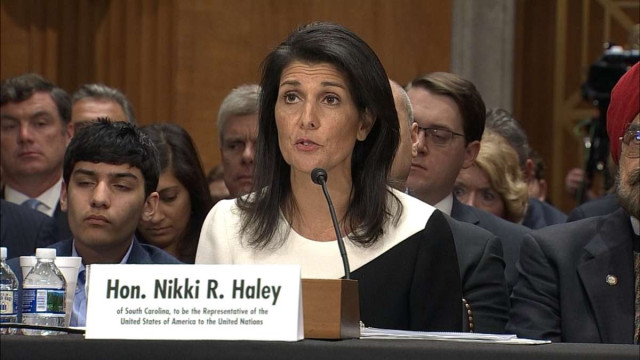
The US confirmed it is currently evaluating “the appropriate level of its continued engagement at Unesco”..PHOTO: Reuters
Haley warned that the landmark ruling by the United Nations Educational, Scientific, Cultural Organisation (Unesco) will undermine the Israeli-Palestinian peace process.
She said it “discredits an already highly questionable UN agency”.
Her comments came within hours of the UN’s main cultural heritage body, awarding the old city of Hebron, endangered status and recognising it as a Palestinian area.
Hebron is an especially contentious territory, because both Jews and Muslims revere a same site as the traditional burial place of the biblical patriarchs and matriarchs.
Jews call it the Tomb of the Patriarchs, while for Muslims it is the Ibrahimi Mosque.
Outraged Israeli officials have said the Unesco vote negated the deep Jewish ties to the biblical town and its ancient shrine, while their Prime Minister Benjamin Netanyahu called it "another delusional decision by Unesco"
Haley added to the criticism on saying it was "tragic on several levels", adding: "It represents an affront to history."
She said: “It undermines the trust that is needed for the Israeli-Palestinian peace process to be successful. And it further discredits an already highly questionable UN agency. Today’s vote does no one any good and causes much harm.”
UNESCO announces West Bank city of Hebron a heritage site
The US confirmed it is currently evaluating “the appropriate level of its continued engagement at Unesco”.
Haley has previously boasted about cutting more than $500m (£387m) from the UN's peacekeeping budget.
The move was the latest chapter in Israel's uneasy relationship with Unesco, an agency it accuses of being an anti-Israeli tool that makes decisions out of political considerations.
The 12-3 vote, with six abstentions, came on a secret ballot at an annual UNESCO World Heritage Committee meeting in Krakow, Poland, following a proposal from Palestinian representatives.
The decision obliges the World Heritage committee to review its status annually.
"This is a historical development because it stressed that Hebron and the Ibrahimi Mosque historically belong to the Palestinian people," said Palestinian Minister of Tourism Rula Maayah.
But Israel's Deputy Foreign Minister Tzipi Hotovely said Unesco's "automatic Arab majority succeeded in passing the proposed resolution that attempts to appropriate the national symbols of the Jewish people."
She added: "This is a badge of shame for Unesco, who time after time chooses to stand on the side of lies."
Netanyahu expressed outrage that Unesco determined the Tomb of the Patriarchs in Hebron "is a Palestinian site, meaning not Jewish, and that the site is in danger."
"Not a Jewish site?!" he asked sarcastically. "Who is buried there? Abraham, Isaac, Jacob, Sarah, Rebecca and Leah — our patriarchs and matriarchs!"
Netanyahu pointed to extremists blowing up religious sites in the Middle East and said, "It is only in those places where Israel is, such as Hebron, that freedom of religion for all is ensured."
Hebron is part of the West Bank, a territory captured by Israel in the 1967 Mideast war. The international community considers it to be occupied.
Palestinians claim the West Bank is an integral part of a future independent state, a position that is widely backed internationally.
Netanyahu says Jerusalem 'will always be Israel's capital'
Israel says the territory's fate, along with other core issues like security, should be resolved in negotiations.
In the meantime, Israel has built dozens of settlements in the West Bank housing about 400,000 Israelis. The Palestinians — and most of the world — consider these to be illegal obstacles to peace. Israel says the future of the settlements also must be decided through talks.
Several hundred ultra-nationalist settlers live in heavily guarded enclaves in Hebron, amid about 170,000 Palestinians. There is frequent friction between the two populations.



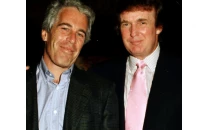
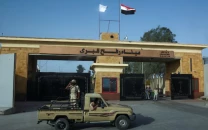
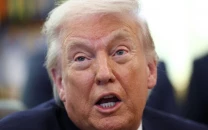
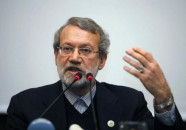












COMMENTS
Comments are moderated and generally will be posted if they are on-topic and not abusive.
For more information, please see our Comments FAQ